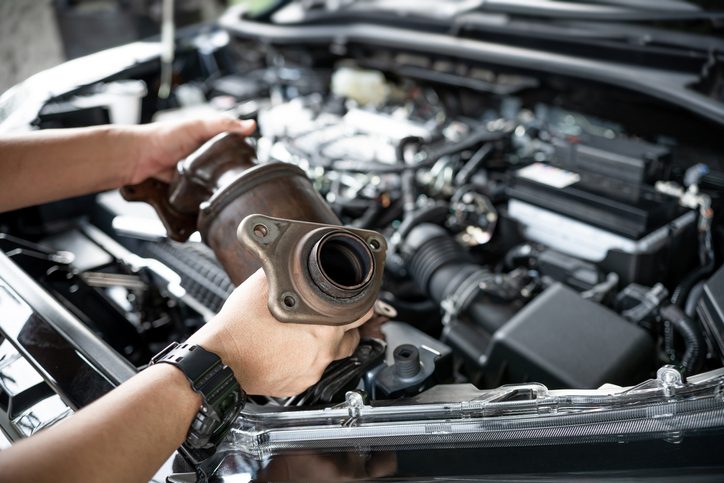Almost 3 in 5 motorists likely to use recycled car parts

Nearly three fifths (58%) of UK drivers would be likely to use a recycled car partAlmost half of motorists (47%) say they are more likely to use a recycled part now compared to five years ago17-24 year-olds most likely to use recycled parts (72%)Top reasons include cost (57%), sustainability (35%) and the desire to stay mobile (28%)Despite this, one in six (16%) do not know which parts can be recycled, indicating awareness gap around what can and cannot be reused
Nearly three fifths of motorists would be likely to use a recycled car part (58%) if their vehicle required a repair, with just under half saying they are more likely to use a recycled part now compared to five years ago (47%).
According to Aviva research, those aged 17-24 surveyed are the most likely age group to use recycled parts (72%), compared to those aged 55 and over, who are least likely (45%).
The top five reasons for considering a recycled car part include:
Cost – they’re cheaper (57%) Being better for the environment / more sustainable (35%) The desire to stay mobile, regardless of where the part comes from (28%)Previously using them without any issues (26%) Confidence that they are safe (25%)
Convenience also plays a part, with nearly a quarter (23%) saying they would use a recycled car part as they are more readily available than waiting for a new part. In fact, some motorists have taken matters into their own hands, with savvy searchers heading online to find recycled parts.
Just under a quarter (24%) have turned to the internet to source recycled parts, followed by an online auction site (18%) and social media (12%). This could, in part, be explained by the younger demographics being most likely to embrace using recycled car parts.
While three in five (58%) would be likely to use recycled parts, just under three quarters (73%) of those with a car would expect to be offered a new car part first, indicating that there may still be some underlying concern amongst motorists.
When looking at those who are unlikely to use recycled parts (20%):
Over a third want a guarantee in the event something goes wrong (39%) Over a third worry that the parts won’t last as long (37%)Over a quarter cite concerns over safety (27%)One in 10 say it feels a bit ‘cheap’ to use (10%)Over one in 10 worry that it could affect selling their car in the future (11%)
Men are more hesitant, with two fifths (40%) stating they are unlikely to consider using recycled parts because they only want to use the manufacturer’s part in their cars, compared to 23% of women.
The research also indicates a lack of awareness and understanding on the topic, with one in six motorists (16%) admitting they do not know which car parts can be reused for cars in need of repair.
Hazel Johnson
Hazel Johnson, Personal Motor and Home Claims Director, at Aviva, comments:
“People are increasingly making more sustainable decisions and so it’s encouraging to learn that more motorists would be open to using recycled parts, with over half saying that they would be more likely to consider this compared to five years ago.
“However, our research shows that some motorists still remain divided on whether they are safe to use. Rest assured, at Aviva, we only fit parts that aren’t ‘safety critical’ to your vehicle such as bumpers, trims, panels and door glass. In most instances, these parts will either be a genuine part supplied by the original manufacturer or will be of similar technical standard, so are perfectly safe to fit.
“Using recycled parts has a range of benefits and primarily helps get people back on the roads quicker with more readily available parts. It is also a more sustainable and climate-ready option that benefits the environment by reducing waste.”
As part of Aviva’s ambition to be Net Zero by 2040, its UK-wide vehicle repair centres – known as Solus – aim to use recycled parts where appropriate and safe to so, helping get customers and their vehicles back on the road as soon as possible.





